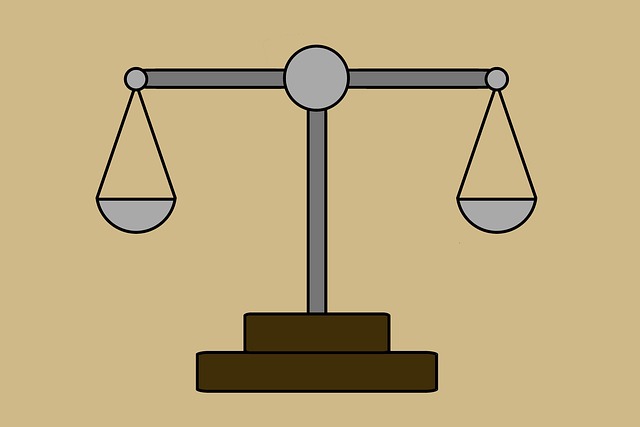Healthcare law firms play a pivotal role in navigating complex medical disputes, understanding the burden of proof as a key determinant of legal outcomes. This principle, requiring evidence-backed claims, significantly impacts verdicts in medical malpractice, fraud, and economic crime cases. In criminal defense and civil healthcare litigation, the difference lies in who carries the burden—plaintiffs must prove harm (civil) or prosecutors must establish guilt beyond reasonable doubt (criminal). For healthcare providers, this ensures fairness while protecting them from baseless accusations. Effective law firms strategize by building robust cases with comprehensive documentation, expert witness testimonies, and solid research to persuade juries or judges, ultimately achieving favorable verdicts in a dynamic healthcare law landscape.
In the intricate landscape of healthcare law, understanding the role of specialized firms is paramount. Healthcare Law Firms serve as crucial navigators in legal disputes, often with life-or-death consequences. This article delves into the core functions of these firms and explores a fundamental legal principle: the burden of proof. We examine how this concept significantly influences healthcare verdicts, offering strategies for firms to excel in complex cases. Through real-world case studies, we uncover the impact of burden of proof on outcomes, providing insights into navigating this complex legal terrain.
- Understanding Healthcare Law Firms and Their Role in Legal Disputes
- The Concept of Burden of Proof: A Fundamental Legal Principle
- Impact of Burden of Proof on Healthcare Verdicts
- Strategies for Healthcare Law Firms to Navigate Complex Cases
- Case Studies: Examining Real-World Scenarios and Outcomes
Understanding Healthcare Law Firms and Their Role in Legal Disputes

Healthcare law firms play a pivotal role in navigating complex legal disputes within the medical sector. These specialized practices are equipped to handle a myriad of issues, from regulatory compliance and contract negotiations to high-stakes litigation and white collar defense. In the event of legal disagreements, understanding the burden of proof becomes paramount. This crucial aspect dictates the direction and outcome of cases, especially in the context of healthcare where evidence and expert testimony are integral to establishing liability or innocence.
The burden of proof varies across different types of cases, significantly impacting verdicts. In civil lawsuits involving medical malpractice or patient care disputes, plaintiffs typically bear the burden of proving that a healthcare provider’s actions fell below the acceptable standard of care, causing harm in the process. Conversely, in criminal investigations targeting healthcare fraud or white collar and economic crimes, prosecutors must convince a jury beyond a reasonable doubt of the accused’s guilt. This fundamental principle ensures fairness and accuracy in legal proceedings, especially as healthcare laws and regulations continue to evolve across the country.
The Concept of Burden of Proof: A Fundamental Legal Principle

The concept of burden of proof is a fundamental legal principle that significantly influences the outcomes of cases, particularly in healthcare law. It refers to the responsibility of a party presenting a claim or argument to provide sufficient evidence to support it. In the context of healthcare disputes, this principle plays a pivotal role as it determines whether a defendant or plaintiff will prevail in their case.
Understanding how burden of proof affects verdicts is crucial for both general criminal defense and civil healthcare litigation. In jury trials, for instance, the prosecution bears the burden of proving beyond a reasonable doubt that the accused committed the crime. Similarly, in healthcare cases, plaintiffs must present compelling evidence to demonstrate that a medical professional’s actions or omissions led to harm. This ensures that justice is served and protects both patients’ rights and healthcare providers from unfounded allegations.
Impact of Burden of Proof on Healthcare Verdicts

The burden of proof is a fundamental principle in healthcare law, significantly influencing the outcomes of medical malpractice verdicts. This legal concept dictates the level of certainty required to establish liability, which can have profound effects on both plaintiffs and defendants. When navigating high-stakes cases involving corporate and individual clients, understanding this impact is crucial.
In healthcare litigation, the burden often lies with the plaintiff, requiring them to present compelling evidence and argue that a healthcare provider’s actions or omissions fell below the acceptable standard of care. This stringent requirement ensures fairness but can also pose challenges for claimants. An unprecedented track record of successful cases may result from a clear understanding and application of this legal principle, where solid evidence and expert testimony lead to just verdicts.
Strategies for Healthcare Law Firms to Navigate Complex Cases

In navigating complex healthcare cases, law firms must employ strategic approaches that go beyond traditional legal tactics. One key factor is understanding the burden of proof, which significantly influences verdict outcomes. Healthcare litigation often involves intricate scientific and medical evidence, requiring robust interpretations and clear presentations to persuade juries or judges. Effective strategies include meticulously building a case with comprehensive documentation, expert witness testimonies, and solid research to counter opposing arguments. By demonstrating a compelling narrative and addressing potential doubts, law firms can enhance their chances of securing favorable verdicts.
Firms with an unprecedented track record in winning challenging defense verdicts understand the importance of adapting to each unique case. This involves staying abreast of legal precedents, engaging in continuous professional development, and fostering strong relationships within the philanthropic and political communities for expert insights and support. Such proactive measures ensure law firms are well-equipped to handle complex healthcare cases, ultimately contributing to a more robust legal framework and improved patient outcomes.
Case Studies: Examining Real-World Scenarios and Outcomes

In the dynamic landscape of healthcare law, case studies serve as powerful tools to dissect complex scenarios and their outcomes. These real-world examples offer insights into how legal strategies, including the application of the burden of proof, can significantly influence verdicts. By examining successful defenses or prosecutions, respective business, corporate, and individual clients can gain a strategic edge. For instance, understanding how the burden of proof was met—or not—in high-stakes medical malpractice cases can provide invaluable lessons for achieving extraordinary results in similar situations. This practical approach allows legal professionals to navigate intricate healthcare regulations with confidence, ensuring their strategies are tailored to the unique circumstances of each client.
Healthcare law firms play a pivotal role in navigating complex legal disputes within the healthcare sector. Understanding the burden of proof is essential for these firms when advocating for their clients. This concept significantly influences verdicts in healthcare cases, requiring law professionals to employ strategic approaches. By examining real-world scenarios through case studies, we uncover valuable insights into how burden of proof affects outcomes and equip healthcare law firms with tools to navigate these intricate matters successfully.






